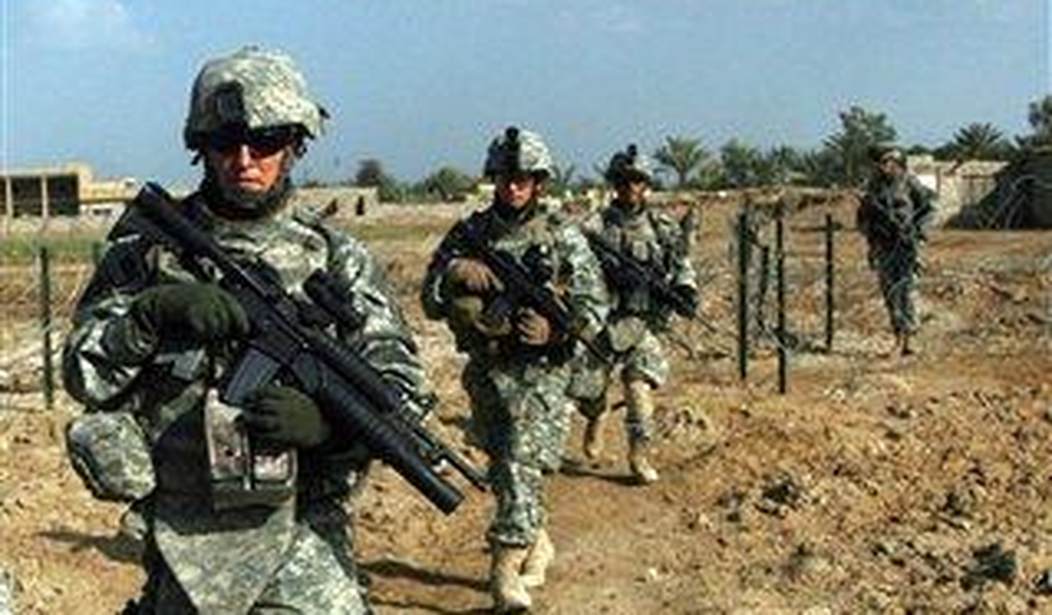For the past year or more, we’ve seen the United States military rapidly changing its policies to adapt to a more woke world. New training courses have been introduced to educate our troops on the correct usage of “sensitive pronouns” to avoid offending anyone. In many cases, you can wear the uniform of your preferred gender rather than your actual sex. (Though curiously, if you were born male and “transition” to female, you still have to register for the draft, but not if you go in the other direction.) They’re even teaching critical race theory at West Point. So how’s that been working out for them? At Townhall, Amber Smith, a veteran of both the Iraq and Afghanistan wars, explains that it hasn’t been working out at all. The army of the past is almost nonexistent today and most branches of the service – particularly the Army – are missing their recruiting goals badly. Morale is down and attracting qualified recruits is getting harder. And the services may have to begin significantly reducing standards if they hope to maintain the force we have now, to say nothing of expanding it when the need arises.
The Army I served in for seven and a half years no longer exists. I am forever grateful to have gotten to serve and defend our great nation in both Iraq and Afghanistan, but the military today is no longer a kill-your-enemies and win wars machine that I once recognized…it has evolved into an indoctrination institution more focused on pronouns and identity politics than accomplishing the mission. It’s often said the military is a reflection of society and that notion makes it stronger, but that is a fallacy. The military should NOT be a reflection of society. It should be made up of young men and women who want to sign up to serve with the patriotic purpose of violently seeking out and destroying our enemies to win wars and protect our way of life. That’s it.
But sadly, the Pentagon has become a political institution, one that has prioritized woke culture, diversity, equity and inclusion. This is not a reflection of those who wear the uniform, have fought in foreign lands or those who joined as their patriotic duty to protect our nation – instead, it is a damning indictment of Pentagon political leadership and the generals and colonels who enforce it, as clearly reflected in the latest and unprecedented recruitment and retention failures, where even the small percentage of Americans able to serve, aren’t interested in doing so.
I can particularly appreciate Smith’s explanation of how the military isn’t supposed to be a reflection of civilian society. It was never designed to be that and particularly when civilian society is taking so many bizarre turns these days. This is something I’ve tried to explain here in the past, speaking as a veteran myself. The military isn’t like civilian life. You don’t have the same rights and freedoms as civilians. Your speech comes under restrictions not seen in the civilian world. And you are sometimes called on to do things that no civilian boss would ever try to ask of you.
All of this is done for a reason. If the chain of command fails, the military collapses. When soldiers refuse to obey orders, everything falls apart. The American armed services do not exist to coddle you or protect your feelings. They are in place so that civilians can “sleep peaceably in their beds at night because rough men stand ready to do violence on their behalf.” (A famous quote often attributed to Churchill, but nobody seems entirely sure where it originally came from.)
The impact of all of this is measurable. As of June, with only three months left in the current fiscal year, the United States Army had only reached 40% of its enlisted recruitment goals. This is not a sustainable situation. As Smith points out, the services may soon be forced to lower their standards and are already doing so in some areas. They are offering increasingly large signing bonuses to qualifying recruits, but it’s not attracting enough people.
The majority of young people who sign up to join the military, particularly the Army, do not do so as a follow-on experience from their college gender studies diploma. They sign up because they realize that there is always a chance that our nation will need to summon up young men and women and send them out to meet and defeat our enemies. If you’re going to protest that you can’t wear the type of uniform you’d like to or grow your hair a certain way, the military is really not for you. If you’re going to head for the fainting couch because the drill sergeant addresses you using the “wrong” pronoun, you should probably skip that trip to the recruiting office. And the more our military is forced to change and bend to societal fluctuations in this fashion, the more we’re going to see the young people who truly embrace their traditional military roles heading for the exits or not signing up in the first place.








Join the conversation as a VIP Member